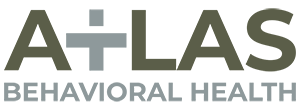Delta-8 is a type of THC that some people say makes them feel calm or sleepy. But just because it’s sold in stores doesn’t mean it’s safe. Delta-8 is often made in labs, not grown like regular cannabis. That’s why it’s called synthetic THC, and it can affect your body and brain in ways you might not expect. If you’re using it to relax or sleep, it’s smart to learn what it really does and what to do if it starts to hurt your health.
What Is Delta-8 and Why Is It Trending?
Delta-8 THC is a chemical that comes from the hemp plant. It’s a cousin of Delta-9 THC, which is the part of marijuana that makes people feel high. Delta-8 is usually sold in gas stations or vape shops and is legal in some places because it comes from hemp, not cannabis directly.
People try it because they think it’s “milder,” but that doesn’t mean it’s safe. Just because something is easy to buy doesn’t mean it won’t hurt your body or mind.
How Is Delta-8 Made? (And Why That Matters)
Most Delta-8 isn’t found naturally in large amounts. So, companies make it by changing CBD (from hemp) into Delta-8 in a lab. That means it’s a synthetic product, not something directly picked from a plant.
In the middle of that process, chemicals and solvents are often used, and not all companies clean them properly. Some products might still have leftover toxins or unknown ingredients. If you’re thinking about what this might mean for your health, our detox and treatment guide (even though it’s about meth) can help show how important safe processing and supervision is.
Is Delta-8 Natural or Synthetic?
At first glance, Delta-8 looks like it’s natural, after all, it starts from hemp. But after all the lab steps, it’s more accurate to call it synthetic THC. Unlike traditional marijuana, which is smoked or eaten with little change, Delta-8 products go through heavy processing.
That’s what makes it risky. No one is checking every vape or gummy to see what’s really inside. And without rules, people could be using chemicals that harm their lungs, brain, or heart. It’s one more reason why protecting your health means learning what you’re really putting in your body.
Short-Term Effects of Delta-8 on the Mind and Body
Some people say Delta-8 helps them feel relaxed, sleepy, or lightly high, but that’s only part of the story. According to research on how synthetic THC affects your body, side effects can include confusion, rapid heart rate, and even paranoia.
That’s because Delta-8 isn’t always predictable. It affects your brain’s mood and energy chemicals, and for some, it creates a calm feeling. For others, it leads to anxiety or feeling “too high.” Since products vary in strength and purity, even a small amount can hit hard depending on your body and mindset.
The Risks of Synthetic Delta-8 Products
When Delta-8 is made in low-quality labs, you never really know what you’re getting. Some products might have leftover chemicals from the process, or they’re not tested for safety. That’s why experts from trusted recovery centers like Atlas Behavioral Health warn people about these hidden dangers.
Many users assume Delta-8 is “safe” because it’s legal in some places, but legal doesn’t mean clean. Without regulation, there’s no one checking for contaminants. A single cartridge or gummy could include unknown substances that can impact your lungs, brain, or liver.
Delta-8 for Anxiety or Sleep: Helpful or Harmful?
It’s common to hear people say, “Delta-8 helps me sleep,” or “It calms me down.” But those effects may not last, and can sometimes flip. If you’re using it to manage stress, professional mental health support for anxiety might offer a safer and longer-lasting solution.
While Delta-8 can temporarily relax your nervous system, it also alters the way your brain handles emotions. That means your anxiety might return stronger once it wears off. For some, this creates a cycle of dependence where they rely on Delta-8 just to feel “normal.”
Long-Term Impact on Your Mental and Physical Health
Over time, using Delta-8 may do more harm than good. While many think it’s “safer” than marijuana, the truth is we still don’t fully know how Delta-8 affects the brain or body in the long run. Some users report memory issues, motivation loss, mood swings, and emotional numbness after regular use.
In some cases, people turn to Delta-8 when they’re already feeling low or anxious. That’s where the risks grow. If you’re struggling with your mood or energy, getting help for depression and mental health might do more for your well-being than another dose ever could.
Is Delta-8 Legal in My State?
Delta-8’s legal status is confusing. Depending on where you live, it may be fully legal, restricted, or banned. Since it comes from hemp, some states allow it under federal hemp laws, but others have passed laws to block it.
Even if it’s legal, that doesn’t make it safe. Because it’s not regulated like medical marijuana or prescription drugs, you won’t always know what’s in it. Always double-check your state’s laws, especially before traveling or ordering online.
Delta-8 vs Delta-9: Is One Safer Than the Other?
Delta-8 and Delta-9 are both forms of THC, but Delta-9 is the one most people know from marijuana. It is weaker in some ways but more unpredictable, especially in synthetic form. Their effects may feel lighter, but poor manufacturing can make them harder to control.
If you’re using either to cope or escape, that’s a signal to pause. Many people who start with Delta-8 end up wondering if their use is still “casual” or becoming a habit. Asking that question means you’re paying attention, and that’s a good thing.
Is Delta-8 Addictive?
Some people say Delta-8 isn’t addictive because it’s milder than other forms of THC. But that’s only half true. While it may not cause strong physical withdrawal like harder drugs, it can create emotional or psychological dependence, especially if you’re using it to escape stress, boredom, or sadness.
You may not notice the problem right away. It often starts with a daily habit, and slowly becomes something you need just to feel okay. If you’re asking yourself whether it’s becoming too much, this guide on understanding addiction and when to seek support can help you think clearly without judgment.
What to Do If Delta-8 Use Is Affecting Your Life
It’s okay to admit when something isn’t working anymore. If Delta-8 is starting to impact your sleep, focus, mood, or relationships, it might be time to talk to someone. You don’t need to be “at rock bottom” to ask for help.
Getting support early makes recovery easier. At Atlas, we offer options like outpatient counseling, detox guidance, and personalized care plans. You can explore why our drug and alcohol rehab center is trusted by so many in the Atlanta area for recovery that meets real-life needs.
Conclusion
Delta-8 may look harmless on the shelf, but what’s inside that gummy or vape pen could affect your brain, emotions, and choices far more than you think. It’s not about fear, it’s about facts.
You deserve to feel good for real, not just for a few hours. If you’re using Delta-8 and feel unsure about it, you’re not alone. Medication-Assisted Treatment (MAT) can provide the support and stability you need to understand what your body and mind are really asking for — and how to respond in a healthy, sustainable way.






